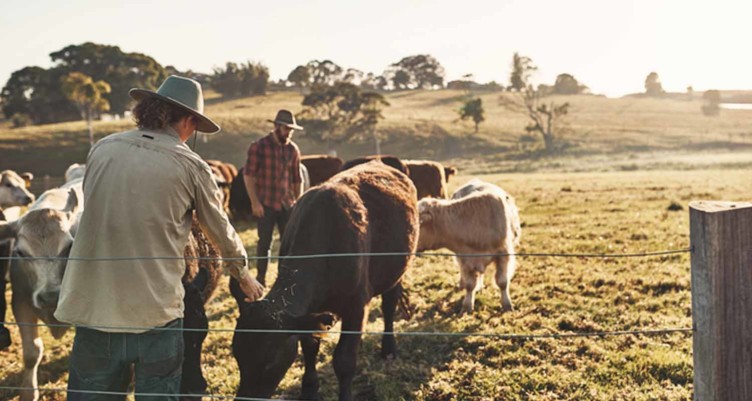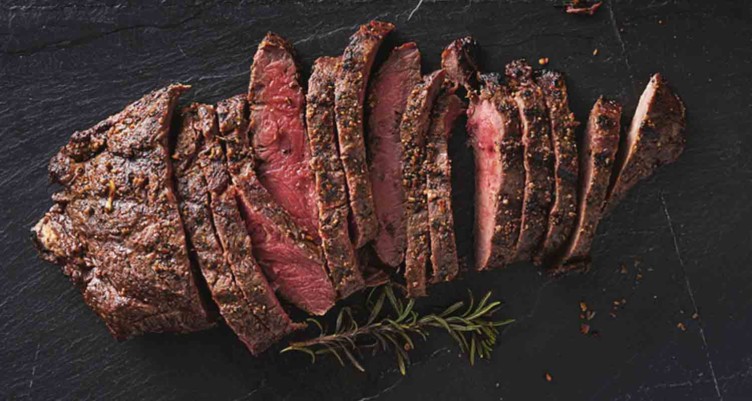Here’s What Would Happen if the Whole Country Went Vegan

The idea of a society where we all live off of a plant-based diet, where no animals are harmed in the feeding of humans, may sound like Shangri-La to some — especially with growing reports that industrial cattle farms contribute to greenhouse gas emissions. But new research shows why a vegan diet for all might not be as ideal as it sounds (even for those who prefer beans over bacon).
Study explores what life would be like without animal farming
To find out whether a plant-based model would be better for the planet and for humans, researchers simulated what the U.S. would be like if Americans eliminated all animal agriculture – and, by extension, all animal-derived foods from the American diet.[1] Their findings? There’d be 23 percent more food available – mostly in the form of grains. Meanwhile, greenhouse gas (GHG) emissions would decrease by 28 percent. So what’s the problem, you ask? Well, there was one major snafu in their findings that would make you think twice about a world of berries without burgers.
A crappy reason why going vegan won’t work
The crux of their findings lies in a pile of…poop. Yes, poop. Essentially, without farm animals we’d have no poop (aka fertilizer) to keep the soil healthy. Plants, it turns out, need poop to grow. And if everyone and their mom were living off a plant-based diet, the earth would need even more fertilizer to yield enough food for the country. Without natural manure supplies, farmers would need to rely upon man-made fertilizer. Artificial fertilizers throw off the soil’s natural ecosystem, causing unbalanced microbes, flooding, and erosion problems. Without poop, we’d also need to mine nitrogen sources, which we are already rapidly depleting. In other words, what seems like an intriguing environmental solution is in fact a lot crappier than what the researchers anticipated.
A plant-based diet lacks key nutrients
Sustainability isn’t the only issue with Americans ditching a carnivorous diet. The researchers also found this system would strip the American diet of these important nutrients:
- Calcium
- Sufficient amounts of vitamins A and B12
- Essential fatty acids[2]
All in all, animal-based foods currently comprise 24% energy, 48% protein, 23-100% essential fatty acids, and 34-67% essential amino acids of the American diet. What this means is that the plant-based model is actually unable to support American nutritional needs, particularly long-term.
Related: What to Know Before Going Vegan
Why grass-fed meat may be the answer
Some people steer away from meat for ethical, environmental, or health reasons. Without a doubt, factory farming is terrible for the environment and your health — but small-scale farming is a whole different ballgame. Happily, there’s an alternative to unethical factory farming — and it involves animals grazing freely in lush pastures far away from the gates of factory farms.
Raising cattle does not hurt the environment (See: the discussion about the necessity of animal poop above). It’s all about raising cows on pastures to replenish the soil sustainably. In fact, eating grass-fed meat is more sustainable for the planet than eating no meat at all.
According to The National Trust, a conservation non-profit in the United Kingdom, raising grass-fed beef is good practice for planetary health and sustainability, because it reduces greenhouse gas emissions. Grass farming also typically makes use of “marginal land” to increase food production. Finally, grass-fed beef production leads to biodiverse pasture ecosystems.[3] A winning solution, to boot.

Grass-fed meat is also better for you
As for the nutritional part of the equation, the problem with meat is not in meat itself — but the toxins, steroids, antibiotics, and inflammatory fats found in factory-farmed, grain-fed meat. High-quality meat from animals raised in a natural setting, on the other hand, is great for you, particularly its fat content. Grass-fed beef contains more antioxidants, omega-3’s, CLA, TVA, trace minerals, and vitamins than any other food (including conventional meat).
So there you have it—a world of corn and soy with greater emissions and unreliable nutrient sources versus an ethically, environmentally, and nutritionally sustainable utopia of sauerkraut and steaks, replenishing itself one dung at a time. What’s your pick?
Sign up for early access to sales, product launches, the latest Bulletproof news and more!



